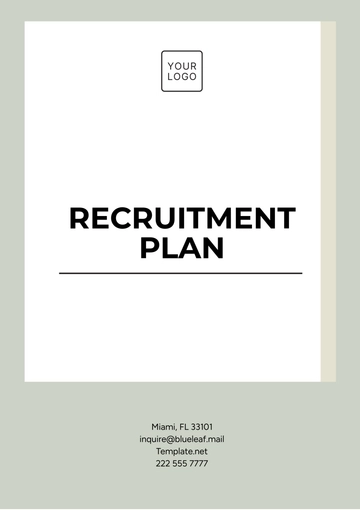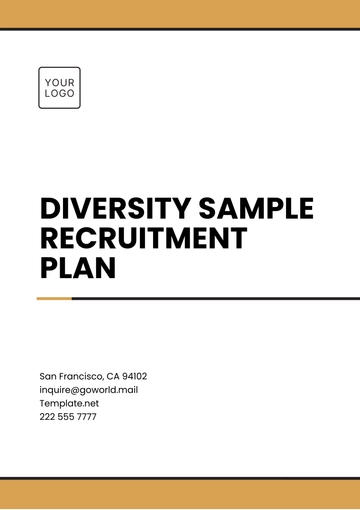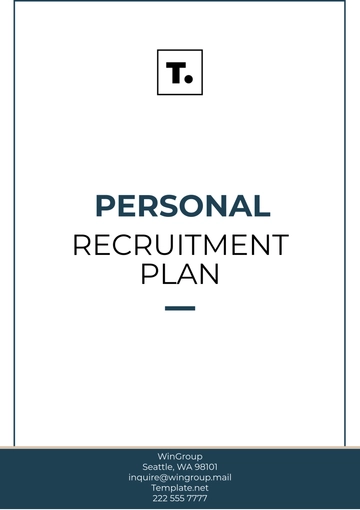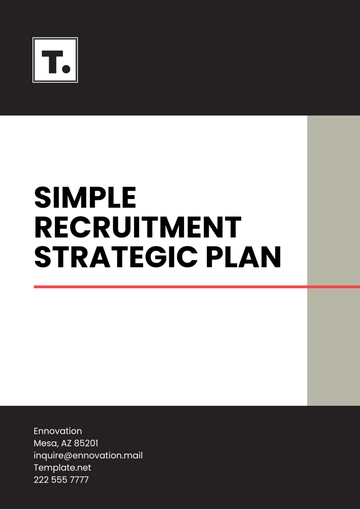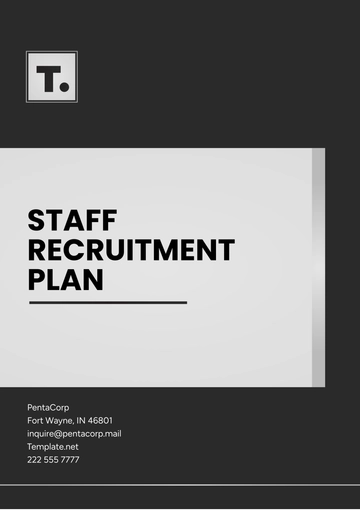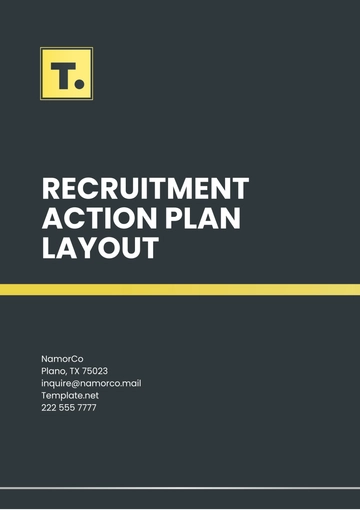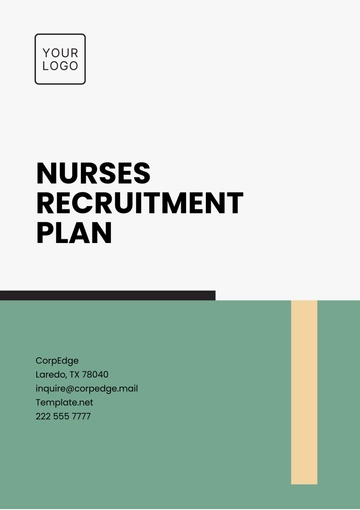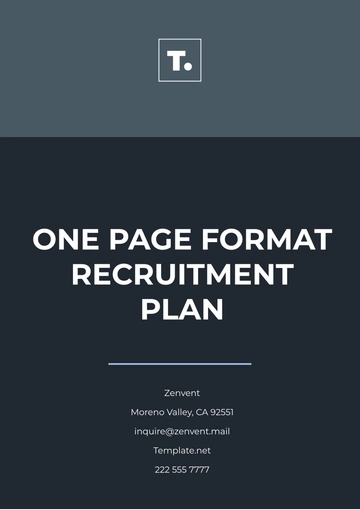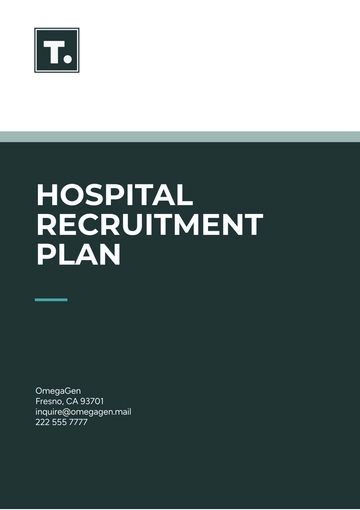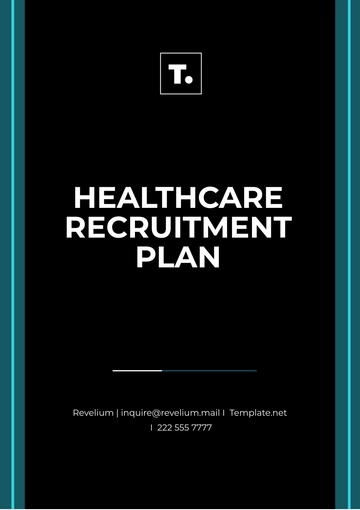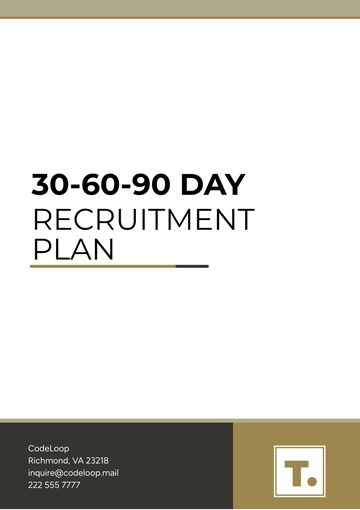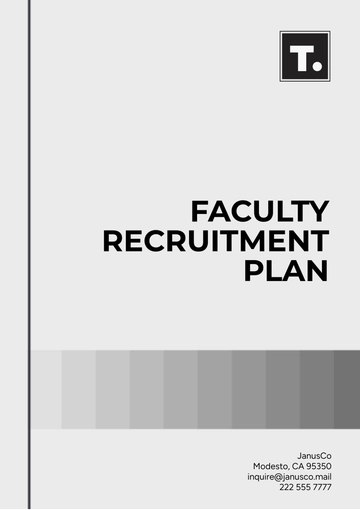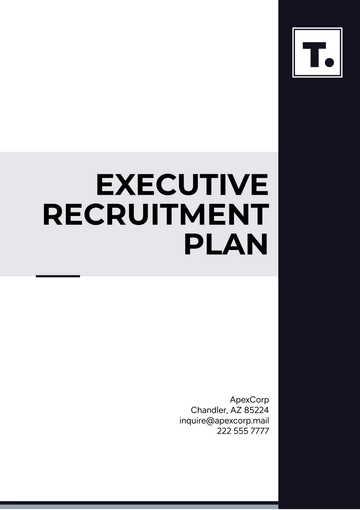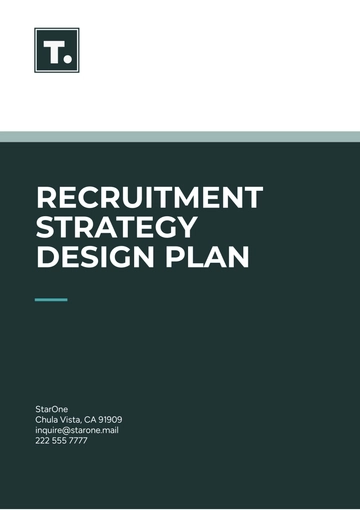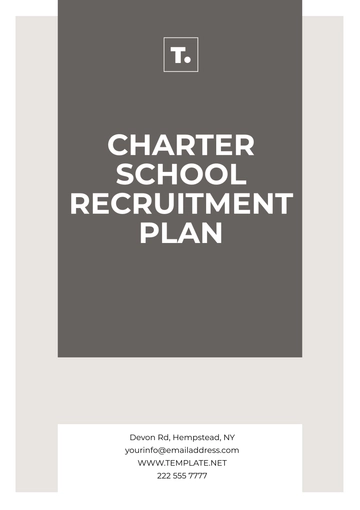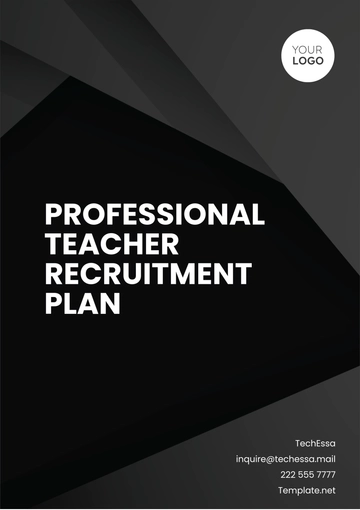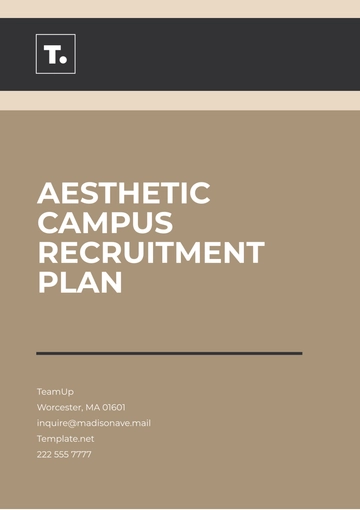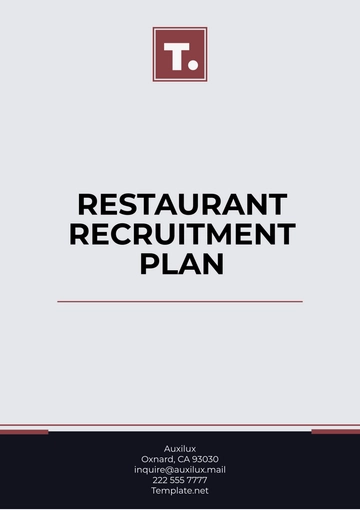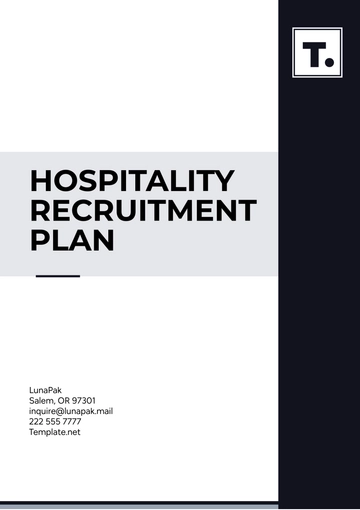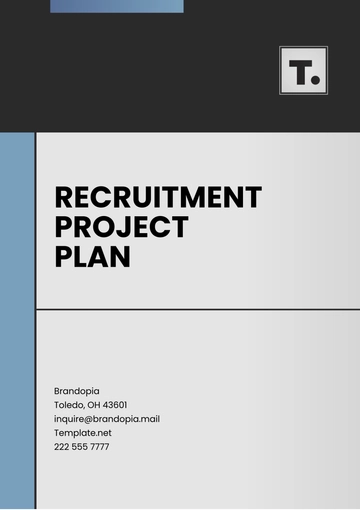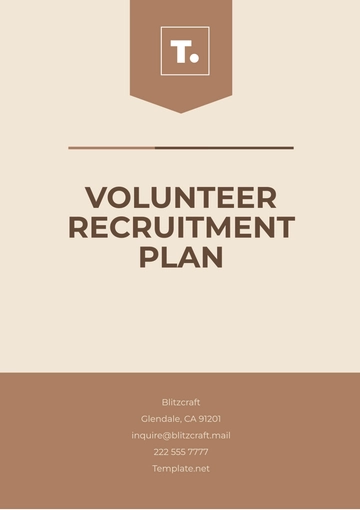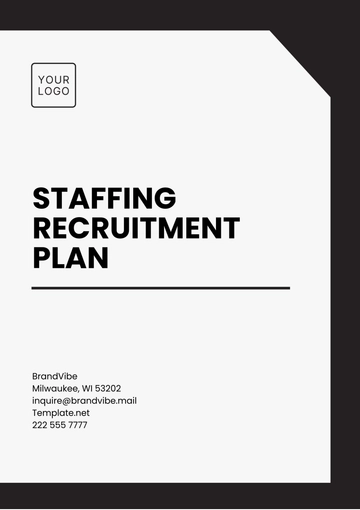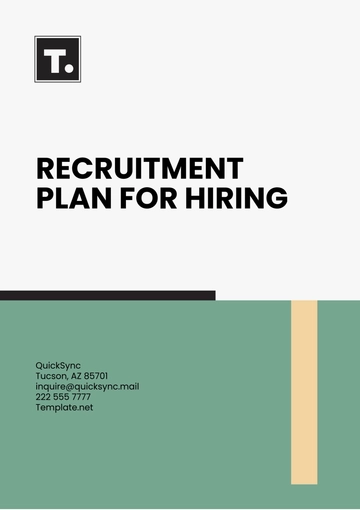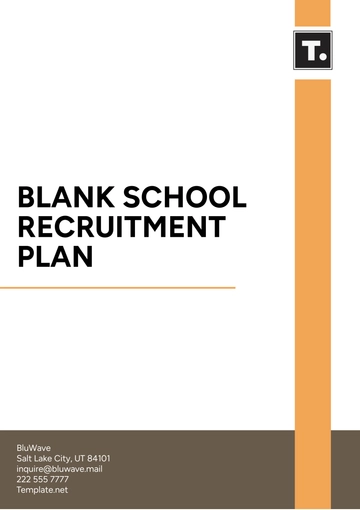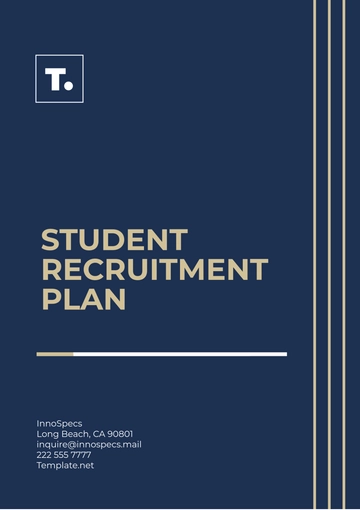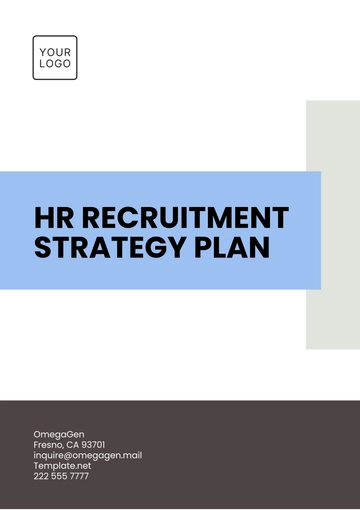Free Aesthetic Campus Recruitment Plan
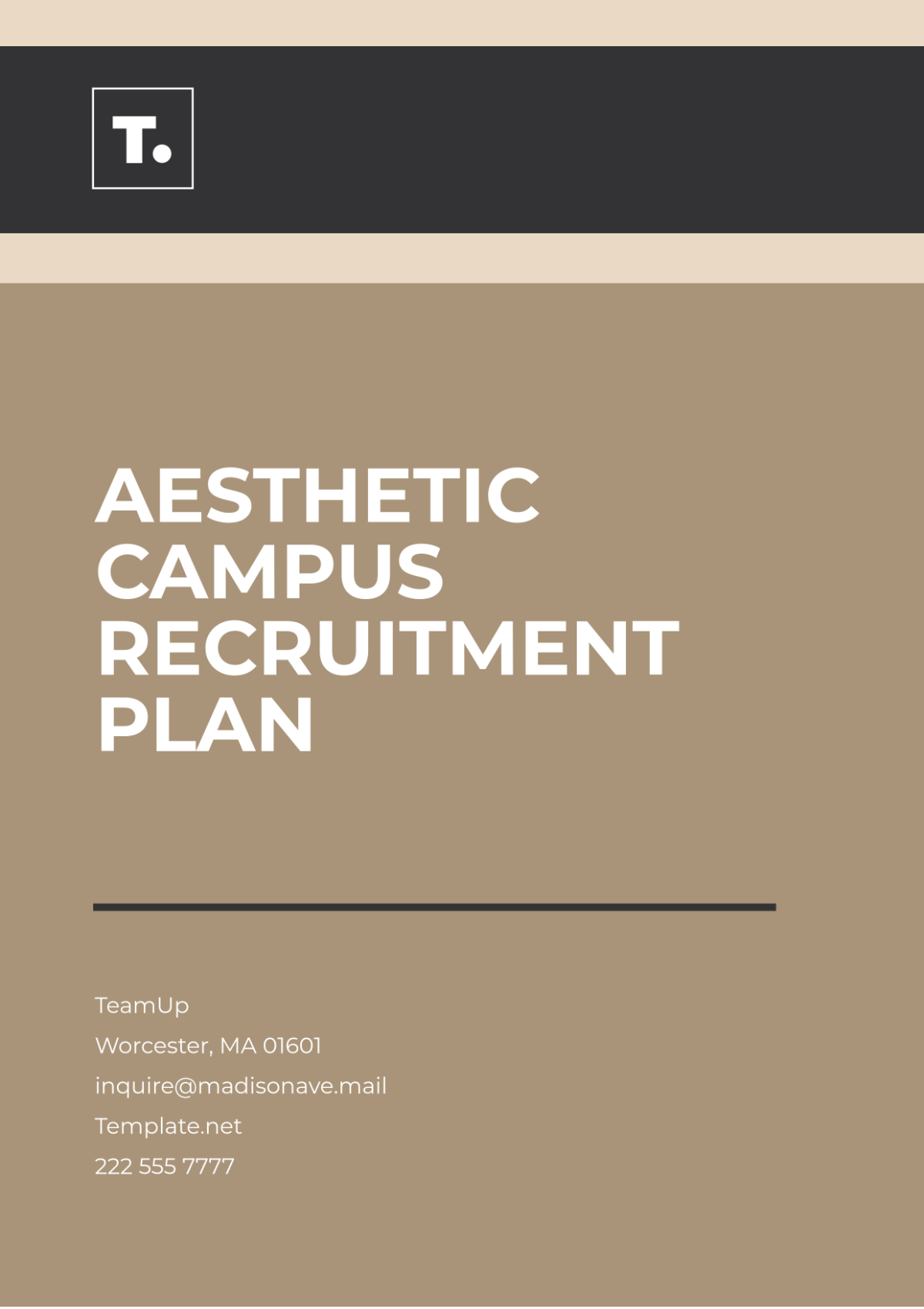
Prepared by: [YOUR NAME]
Company: [YOUR COMPANY NAME]
Date: [DATE]
I. Introduction
In today's competitive job market, attracting top talent is essential for the success of any organization. Campus recruitment presents a unique opportunity to tap into a pool of promising candidates while also showcasing our company's culture and values. This recruitment plan outlines our strategy for engaging with educational institutions to identify and recruit talented individuals who will contribute to [Your Company Name]'s success.
II. Objectives
Access to Talent Pool: Tap into a diverse pool of potential candidates, including recent graduates and soon-to-be graduates, to bring fresh perspectives and skills to [Your Company Name].
Succession Planning: Identify and nurture promising candidates early in their academic careers, with the aim of grooming them for future leadership roles.
Brand Visibility and Employer Branding: Enhance visibility and reputation among the academic community, showcasing our company culture, values, and career opportunities to attract top talent.
Cost-Effective Hiring: Utilize campus recruitment as a cost-effective method for hiring entry-level positions, reducing reliance on expensive external hiring processes and agencies.
Tailored Talent Acquisition: Target specific disciplines or skill sets that align with current and future business needs, ensuring that we attract candidates with the right qualifications and aptitudes.
Cultural Fit Assessment: Interact with potential candidates in an informal setting to assess not only their technical skills but also their cultural fit with [Your Company Name].
Long-Term Investment: Invest in campus recruitment initiatives to establish relationships with educational institutions, faculty, and students, laying the groundwork for future collaborations, research partnerships, and alumni engagement.
III. Recruitment Strategy
Identify Target Institutions: Research and identify educational institutions that offer programs relevant to [Your Company Name]'s industry and hiring needs.
Engage with Career Centers: Establish relationships with career centers and faculty members to gain access to students and upcoming campus recruitment events.
Attend Career Fairs: Participate in career fairs and networking events hosted by target institutions to interact directly with students and promote [Your Company Name] as an employer of choice.
Host Information Sessions: Organize on-campus information sessions to provide students with insights into [Your Company Name]'s culture, values, and career opportunities.
Offer Internship Programs: Develop internship programs to provide students with hands-on experience and opportunities to explore potential career paths within [Your Company Name].
Utilize Online Platforms: Leverage online platforms, such as [Your Company Website] and social media channels, to promote campus recruitment events and engage with students virtually.
IV. Recruitment Timeline
A. Key Events and Deadlines
Event | Date |
|---|---|
Identify Target Schools | January 2050 |
Engage with Career Centers | February 2050 |
Attend Career Fairs | March 2050 |
Host Information Sessions | April 2050 |
Offer Internship Programs | May 2050 |
Follow-Up and Evaluation | June 2050 |
V. Financial Projections
A. Estimated Expenses
Expense | Amount ($) |
|---|---|
Travel Expenses | $10,000 |
Marketing Materials | $5,000 |
Internship Stipends | $20,000 |
Total | $35,000 |
VI. SWOT Analysis
A. Strengths
Strong company culture and values.
Established relationships with educational institutions.
Innovative internship programs.
B. Weaknesses
Limited brand recognition among students.
Competition from larger corporations with greater resources.
Lack of diversity in the recruiting pipeline.
C. Opportunities
Expansion into new markets through campus recruitment.
Collaboration with universities on research projects.
Enhanced employer branding through social media.
D. Threats
Economic downturn affecting hiring budgets.
Changes in student preferences for industries or locations.
Difficulty in retaining top talent after graduation.
VII. Conclusion
In conclusion, campus recruitment is a strategic initiative for [Your Company Name] to access top talent, strengthen our employer brand, and invest in the future workforce. By executing this recruitment plan effectively, we aim to build a pipeline of skilled professionals who will contribute to the long-term success of our organization.
- 100% Customizable, free editor
- Access 1 Million+ Templates, photo’s & graphics
- Download or share as a template
- Click and replace photos, graphics, text, backgrounds
- Resize, crop, AI write & more
- Access advanced editor
Introducing our Campus Recruitment Plan Template, exclusively on Template.net! Crafted for seamless recruitment processes, it's fully editable and customizable to suit your needs. Plus, it's conveniently editable in our AI tool, ensuring efficiency and precision in your hiring endeavors. Elevate your campus recruitment strategy effortlessly!
You may also like
- Finance Plan
- Construction Plan
- Sales Plan
- Development Plan
- Career Plan
- Budget Plan
- HR Plan
- Education Plan
- Transition Plan
- Work Plan
- Training Plan
- Communication Plan
- Operation Plan
- Health And Safety Plan
- Strategy Plan
- Professional Development Plan
- Advertising Plan
- Risk Management Plan
- Restaurant Plan
- School Plan
- Nursing Home Patient Care Plan
- Nursing Care Plan
- Plan Event
- Startup Plan
- Social Media Plan
- Staffing Plan
- Annual Plan
- Content Plan
- Payment Plan
- Implementation Plan
- Hotel Plan
- Workout Plan
- Accounting Plan
- Campaign Plan
- Essay Plan
- 30 60 90 Day Plan
- Research Plan
- Recruitment Plan
- 90 Day Plan
- Quarterly Plan
- Emergency Plan
- 5 Year Plan
- Gym Plan
- Personal Plan
- IT and Software Plan
- Treatment Plan
- Real Estate Plan
- Law Firm Plan
- Healthcare Plan
- Improvement Plan
- Media Plan
- 5 Year Business Plan
- Learning Plan
- Marketing Campaign Plan
- Travel Agency Plan
- Cleaning Services Plan
- Interior Design Plan
- Performance Plan
- PR Plan
- Birth Plan
- Life Plan
- SEO Plan
- Disaster Recovery Plan
- Continuity Plan
- Launch Plan
- Legal Plan
- Behavior Plan
- Performance Improvement Plan
- Salon Plan
- Security Plan
- Security Management Plan
- Employee Development Plan
- Quality Plan
- Service Improvement Plan
- Growth Plan
- Incident Response Plan
- Basketball Plan
- Emergency Action Plan
- Product Launch Plan
- Spa Plan
- Employee Training Plan
- Data Analysis Plan
- Employee Action Plan
- Territory Plan
- Audit Plan
- Classroom Plan
- Activity Plan
- Parenting Plan
- Care Plan
- Project Execution Plan
- Exercise Plan
- Internship Plan
- Software Development Plan
- Continuous Improvement Plan
- Leave Plan
- 90 Day Sales Plan
- Advertising Agency Plan
- Employee Transition Plan
- Smart Action Plan
- Workplace Safety Plan
- Behavior Change Plan
- Contingency Plan
- Continuity of Operations Plan
- Health Plan
- Quality Control Plan
- Self Plan
- Sports Development Plan
- Change Management Plan
- Ecommerce Plan
- Personal Financial Plan
- Process Improvement Plan
- 30-60-90 Day Sales Plan
- Crisis Management Plan
- Engagement Plan
- Execution Plan
- Pandemic Plan
- Quality Assurance Plan
- Service Continuity Plan
- Agile Project Plan
- Fundraising Plan
- Job Transition Plan
- Asset Maintenance Plan
- Maintenance Plan
- Software Test Plan
- Staff Training and Development Plan
- 3 Year Plan
- Brand Activation Plan
- Release Plan
- Resource Plan
- Risk Mitigation Plan
- Teacher Plan
- 30 60 90 Day Plan for New Manager
- Food Safety Plan
- Food Truck Plan
- Hiring Plan
- Quality Management Plan
- Wellness Plan
- Behavior Intervention Plan
- Bonus Plan
- Investment Plan
- Maternity Leave Plan
- Pandemic Response Plan
- Succession Planning
- Coaching Plan
- Configuration Management Plan
- Remote Work Plan
- Self Care Plan
- Teaching Plan
- 100-Day Plan
- HACCP Plan
- Student Plan
- Sustainability Plan
- 30 60 90 Day Plan for Interview
- Access Plan
- Site Specific Safety Plan
